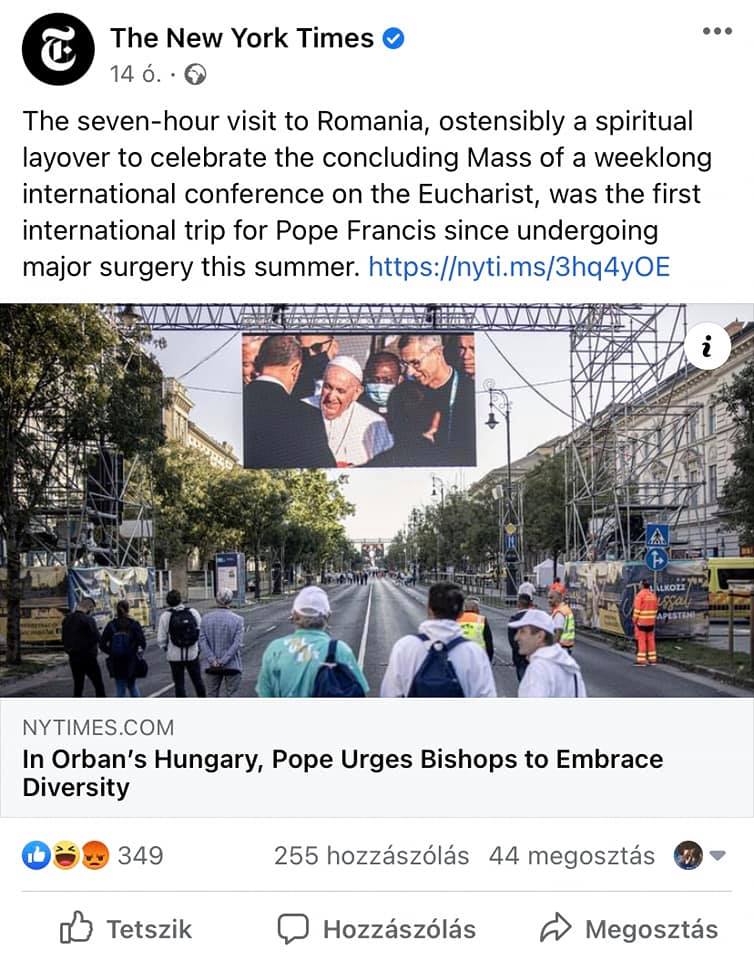Pope Francis arrived in Budapest yesterday for a brief, yet event-packed visit. He met with Prime Minister Viktor Orbán, Deputy PM Zsolt Semjén and President János Áder in the exquisite setting of the Museum of Fine Arts before celebrating the closing Mass of the 52nd International Eucharistic Congress in Budapest’s Heroes Square in front of tens of thousands of the faithful.
In an ideal world without media bias and chronic sensationalism, mainstream news outlets would have easily picked one from a long list of the pontiff’s positive, devotional and high-spirited messages to serve as their front-page headline. Instead, here’s what they went with:
“Pope warns of ‘lurking’ anti-Semitism on Hungary trip” (Politico)
“Pope warns of anti-Semitism as he visits Hungary” (BBC)
“Pope Francis says antisemitism 'still lurking in Europe' on visit to Hungary” (NBC NEWS)
And the list goes on…
Don’t get me wrong, as those readers who routinely follow Hungarian domestic politics will certainly confirm, anti-Semitism, sadly, is still an issue in our country (yet so much less so than in other parts of Europe). As I’ve written dozens of times, on the subject of anti-Semitism, the Orbán Government has a zero-tolerance policy and no other government has done as much as this PM to counter anti-Semitism and support the Hungarian Jewish community - unlike the opposition’s best-polling far-right, radical member party Jobbik.
Furthermore, these journalists are pulling it out of context and spinning hard to drive their own narrative. The pope was in Budapest to attend a large international event, and he was speaking here about Europe and the problem of anti-Semitism internationally. By sleight of hand, these journalists try to pin the remarks on Hungary.
Other media outlets who didn’t join the anti-Semitism bandwagon, began to push an alternative, particularly speculative message line. These voices argued that when Pope Francis said, for example, that “The cross, planted in the ground, not only invites us to be well-rooted, it also raises and extends its arms towards everyone," what he actually meant was that Hungarians should accept immigrants instead of stopping them at the border. Our critics, of course, find similar meaning in the Pontiff’s following thought: "My wish is that you be like that: grounded and open, rooted and considerate.”
So much so, that a majority of these articles only partially reported on the Pope’s visit to Hungary. However, they did include long paragraphs on Prime Minister Viktor Orbán, the campaign against the Soros plan and its alleged anti-Semitism. They seem hell-bent on indoctrinating, and fueling, anti-Orbán behavior in the minds of Western Europeans.
However, most of the outlets at least reported correctly on the location of the event. The same cannot be said for the New York Times.

